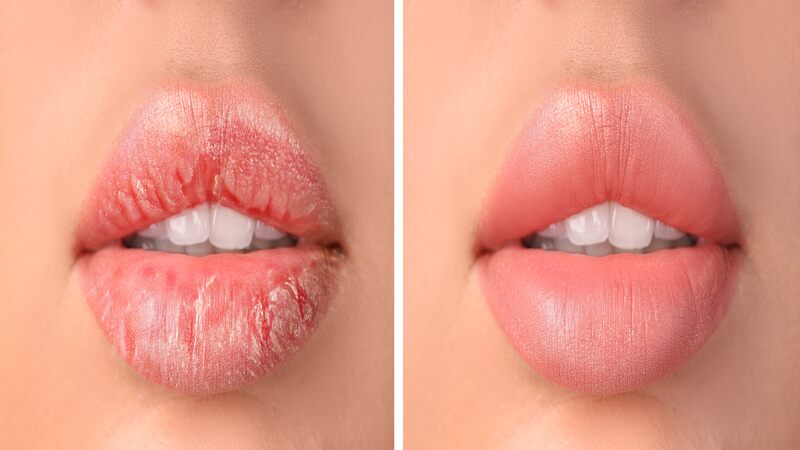 Dry mouth during pregnancy is a common concern for many expectant mothers. It is medically referred to as xerostomia and it can make simple tasks such as eating, speaking and even sleeping more difficult. While your body goes through major changes to accommodate your growing baby, several factors like hormonal changes, dehydration, and some diseases may lead to continued dry mouth feeling. If you have an understanding of the causes, signs, and treatments for dry mouths you will be able to take care of it easily ensuring that you have a healthy and comfortable pregnancy journey.
Dry mouth during pregnancy is a common concern for many expectant mothers. It is medically referred to as xerostomia and it can make simple tasks such as eating, speaking and even sleeping more difficult. While your body goes through major changes to accommodate your growing baby, several factors like hormonal changes, dehydration, and some diseases may lead to continued dry mouth feeling. If you have an understanding of the causes, signs, and treatments for dry mouths you will be able to take care of it easily ensuring that you have a healthy and comfortable pregnancy journey.
In this article, we shall explore what causes dry mouth in pregnancy, what symptoms to watch out for when you have it, and how to relieve it practically. Furthermore, we would also like to point out when it becomes very important to see a doctor so that your case may not be seen as one of asthma or something else that needs urgent attention such as gestational diabetes. These tips are helpful regardless of whether it’s early days or nearing time of delivery thus enabling a smooth sailing through the stormy waters of having a dry tongue.
What is Dry Mouth During Pregnancy?
Dry mouth in pregnancy is called xerostomia and refers to a condition characterized by a decrease in the saliva during the pregnancy, resulting in the woman feeling dry all the time (1).
Causes Of Dry Mouth During Pregnancy

A common problem that numerous pregnant individuals encounter is a dry mouth. The reasons behind it could include a collection of factors such as:
Hormonal adjustments: Elevated levels of progesterone during gestation can influence bodily fluid equilibrium and decrease the output of saliva, causing xerostomia (2).
Dehydration: The growing blood volume and requirements of the fetus make it necessary for expectant mothers to drink more water. A decrease in liquid intake can result in dehydration that usually manifests as dry mouth (3) (4).
Gestational Diabetes: Hence, an increase in blood sugar among pregnant women may also result in dry oral cavity, hence a condition referred to as gestational diabetes mellitus which should be strictly observed for its impacts on health (5).
Symptoms Of Dry Mouth During Pregnancy

Dry mouth during pregnancy can present with various symptoms that may range from mild discomfort to more noticeable issues. Common symptoms include:
- Persistent Dryness or Stickiness in the Mouth
- Thick or Stringy Saliva
- Bad Breath (Halitosis)
- Sore Throat or Hoarseness
- Difficulty Swallowing or Chewing
- Cracked Lips
- Mouth Sores or Infections (6).
How to Treat Dry Mouth During Pregnancy?

During pregnancy dry mouth is a common occurrence that can be uncomfortable. But there are simple ways of managing it. Here are some tips on how to keep your mouth moist and healthy:
- Drink lots of water during the day.
- Put a humidifier in your room especially at night when you sleep.
- Chew sugarless gums or suck on sugarless lozenges to make saliva.
- Avoid taking caffeinated and sugary drinks because they make the condition worse.
- Always breathe from the nose instead of the mouth.
- Eat fruits and vegetables which contain plenty of water.
- Brush and floss regularly for good oral hygiene.
- Speak with your doctor if the dry mouth continues or gets worse (7), (8).
When Should I Visit A Doctor?

If you’re expectant and experience any of the following alongside dry mouth, it’s advisable to see your doctor immediately:
- Persistent dry mouth: Continues drinking water in large quantities as well as applying home remedies yet they don’t work.
- Increased thirst and urination: These are indications of gestational diabetes that needs medical help.
- Mouth sores gum problems or tooth decay: Oral health issues resulting from chronic xerostomia must be examined by either a dentist or physician should be sought out.
- Unexplained tiredness: Persistent fatigue with parched lips could indicate an underlying ailment that requires medical attention (9).
Although a dry mouth is very manageable during pregnancy, do not ignore it in case you experience other symptoms with it or if the condition persists. You can relieve yourself from discomfort due to dry mouth and also improve your overall health during the course of pregnancy by regularly taking fluids, practicing good oral hygiene as well as being alert for signs indicating an urge for medicated attention. Seek personalized advice and care from your matron if you find yourself feeling unsure or noticing more serious symptoms concerning dryness in the mouth.
FAQ’s
1. Is It Normal To Have A Dry Mouth During Pregnancy?
Yes, it is common to have a dry mouth while carrying a child. This could be due to hormonal changes, increased need for fluids despite dehydration leading to dry mouth. To keep themselves hydrated, pregnant women might have to drink extra water than they normally do.
2. Is Dry Mouth A Symptom Of Gestational Diabetes?
In a way dry mouth can help you know if you have gestational diabetes but that isn’t always the case. It will be better for you to see your doctor anytime you suspect having it so as to ascertain it through tests.
3. When Does Dry Mouth Start in pregnancy?
Pregnancy-related soreness could start at any stage of pregnancy, though most reports are during the first three months and last three months. First trimester hormonal changes together with nausea might lead to a sense of thirstiness, which leads to this condition. On the other hand during the last three months; the need for more fluids due to the mother’s own needs plus growing the baby, among others, worsens the situation this time around.
4. Dry Mouth During Pregnancy Indicate Boy or Girl?
No, dry mouth during pregnancy does not indicate the baby’s gender. Factors like hormones, body hydration levels and overall health influence symptoms such as a dry mouth; however, there is no scientific evidence that supports these symptoms being linked to the sex of a baby.
Reference
- Dreyer NS, Lynggaard CD, Jakobsen KK, Pedersen AML, von Buchwald C, Grønhøj C. [Xerostomia]. Ugeskr Laeger. 2021 Jul 5 – https://pubmed.ncbi.nlm.nih.gov/34219641/#
- University of Maryland School of Dentistry, University of North Carolina School of Dentistry – https://amazingsmiles.com.au/understanding-dry-mouth-during-pregnancy/
- American College of Obstetricians and Gynecologists – https://www.acog.org/womens-health/experts-and-stories/ask-acog/how-much-water-should-i-drink-during-pregnancy#
- National Institute of Diabetes and Digestive and Kidney Diseases (NIDDK) – https://www.niddk.nih.gov/health-information/diabetes/overview/what-is-diabetes/gestational?dkrd=hiscr0003#
- Cleveland Clinic, Diabetes and Dry Mouth – https://my.clevelandclinic.org/health/symptoms/22495-diabetes-and-dry-mouth.
- ADA, Xerostomia (Dry Mouth) – https://www.ada.org/resources/ada-library/oral-health-topics/xerostomia#
- Relief For Dry Mouth During Pregnancy – https://www.colgate.com/en-in/oral-health/oral-care-during-pregnancy/relief-for-dry-mouth-during-pregnancy#
- Cathy Tomlinson Wood, RDH, BS, MATSeptember 30th 2019, Pregnancy and xerostomia: What you need to know – https://www.dentalproductsreport.com/authors/cathy-tomlinson-wood-rdh-bs-mat
- Medically reviewed by Deborah Weatherspoon, Ph.D., MSN — Written by Erica Hersh on May 13, 2019 – https://www.healthline.com/health/dry-mouth-pregnancy#

